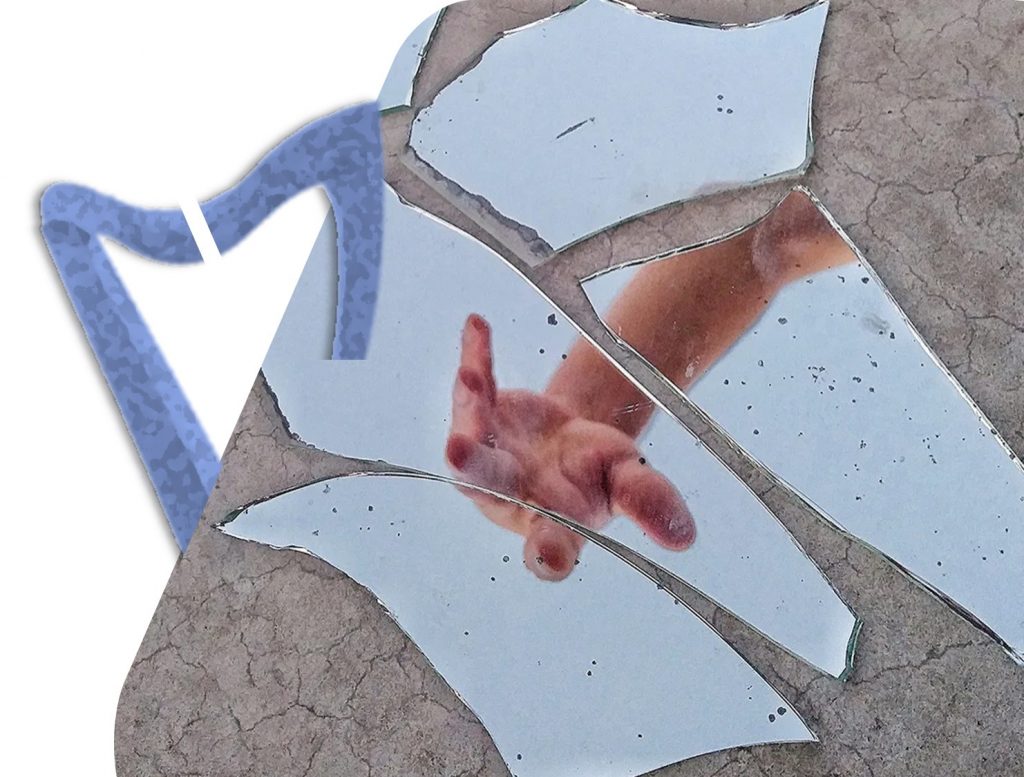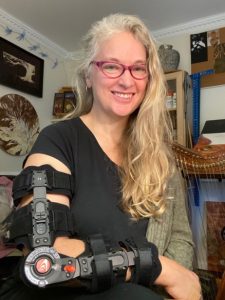 There’s been a lot going on this year – for everyone. It can be challenging to remain positive in the face of so much stuff. But still you must…because there’s always a curve. Possibly just around the corner!
There’s been a lot going on this year – for everyone. It can be challenging to remain positive in the face of so much stuff. But still you must…because there’s always a curve. Possibly just around the corner!
We’re running up on the holiday season. There are weddings and carol sings and church services. There are a million things to practice for – including those that we can’t see on the calendar, but we do know will happen again soon (after COVID).

But what happens when something happens to you? When life throws you a curve? Just this week I have learned of two people in my harp world who are recovering from injury – one has suffered a broken arm!
But that doesn’t mean no playing! However, it does mean taking time for injury recovery. There are plenty of ways to continue with music and plenty of reasons to persist*
First the reasons:
- You can be your own therapeutic musician
- You can only watch so many Christmas movies as you recover (or whatever your mindless guilty pleasure is!).
- You know you need to practice (and you know that there are ways for your to do so, even without playing your harp)
- You can gain a new skill – you could be the only one at your next harp circle that can actually pull off what will look like a party trick – playing an entire tune in one hand!
- You know that it will just make you feel better to spend a little time with your harp!
And now, the ways:
- You’ve only injured one hand/arm/shoulder – but the other one is fine. You can’t go wrong by keeping that side playing. Work on skills that are more prominent in that hand – drill frequent finger patterns, work on rhythm, focus on articulation – there’s loads to do!
- Don’t fret over what you can’t do – focus on what you can. You’re fortunate that this is an injury from which you will recover so you will be able to get back. Your best bet is to not lose ground through inaction and atrophy.
- Dust off your theory – if you’re only using one hand, you will need to leverage all your understanding of chord structure to build a harmony in that hand. You can use simple harmony, practice more complex chords or maybe explore jazzier harmonies.
- Dust off your basics – you might have gotten away from fundamentals – basic technique, strengthening, and stretching. Add this back into your routine so you don’t end up with another injury to overcome.
- Dust off your other basics – you might have gotten away from structural work on intervals in one hand. So, work that in – do the exercises to work your thirds, fourths, fifths, sixths, etc. You will be making all your harmonies from these intervals, so you might as well focus on making them as good (and solid) as you can – no fumbling around! It’s never too late to open Sylvia Woods’ Teach yourself book, Maria Grossi’s book, Sue Richards’ exercises, or whatever your favorite basics book is**.
- Dust off your musicality – here’s a real opportunity to focus on the tune and rendering more musically. Without all the other stuff to focus on (two hands mostly!) you can really hone in on your musicality.
- Work on (and write down!) your arranging skills.
You can see that focusing on one hand might be a bit of bother while you recover but it can open your eyes to some other important aspects of playing. You might even consider giving it a go before you’re injured! And it can’t hurt to have a plan in the event of injury – and you’ll have something to look forward to!
One final thought on recovering while injured – be very careful to monitor your posture and technique while you’re recovery – no need to develop an overuse injury on top of everything else!
Have you been injured and needed to modify how you play or practice? What did you do and how did it work for you? If you haven’t been injured, do you have a plan just in case life throws you a curve? Let me know in the comments below.
* please don’t do anything dumb – I’m not that kind of doctor, this is not medical advice. If you are recovering from an injury or surgery, follow the instructions of your physician, physical therapist, occupational therapist, and other health care providers. But don’t forget to ask those same providers to help you recover by explaining that you are a harp player and you are keen to get back to your harp – for your mental, emotional, and physical health. They can’t give you useful advice if you don’t tell them you need to play your harp! Be prepared to explain what you need to be able to do while you’re playing.
** Not a paid endorsement and there are lots of books – I like these and I think you might too.